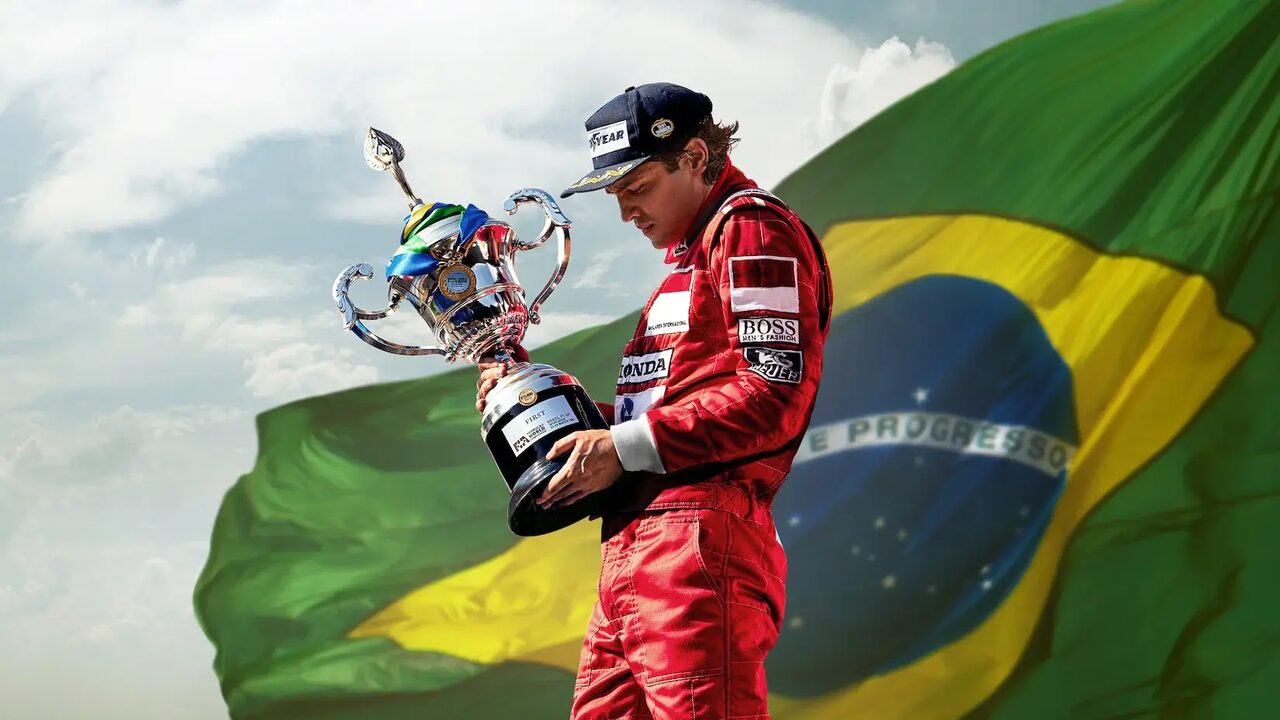
Netflix’s Senna miniseries is a stylish yet grounded look at the life of Ayrton Senna, capturing both his brilliance as a driver and the quiet intensity of his personal life. Directed by Vincente Amorim, this four-episode biopic achieves the delicate balance of celebrating a legend while uncovering the vulnerabilities of the man behind the myth. It’s part adrenaline-fueled thrill ride, part poignant drama, and all heart.
What works beautifully is the show's visceral approach to Senna’s journey. The racing sequences are shot with such immersive precision that you feel the roar of engines and the gut punch of g-forces. The cinematography expertly uses point-of-view shots and dynamic angles to put you right in the cockpit, offering an almost first-person perspective of Senna’s unparalleled skill and audacity on the track. These scenes don’t just dazzle; they communicate the risks and sheer determination that define Senna’s career.
Gabriel Leone’s portrayal of Senna deserves special mention. He brings a quiet charisma and depth to the role, capturing the Brazilian hero's fierce competitive spirit and disarming charm. Leone doesn’t try to mimic Senna but instead channels his essence, making him feel authentic and human. His chemistry with the supporting cast, including Felipe Camargo as Ayrton's father and charismatic co-stars portraying his peers and rivals, adds layers to the narrative. The Prost-Senna rivalry is especially gripping, a blend of professional respect and personal animosity that feels as fiery and unpredictable as the racetrack.
The series doesn’t shy away from Senna’s imperfections, which is where its emotional core lies. While his on-track brilliance is awe-inspiring, Senna delves into his struggles with fame, family expectations, and the psychological toll of his relentless drive for perfection. The writing skillfully balances his larger-than-life persona with his vulnerabilities, showing us a man who can be infuriatingly stubborn and deeply compassionate.
On the downside, Senna occasionally gets bogged down in melodrama. The emotional beats, particularly involving Senna’s family and romantic relationships, can feel slightly overcooked. While these moments aim to provide context and depth, they sometimes come off as formulaic, detracting from the otherwise gripping narrative. Additionally, the series leans heavily on a chronological format, which, while thorough, can occasionally make the pacing uneven.
Another critique is its limited exploration of the broader socio-political context of Senna's career. The show briefly touches on his iconic status in Brazil, where he was a symbol of hope during turbulent times, but it doesn’t fully unpack this dynamic. A deeper dive into this aspect could have elevated the series from a great biopic to a transcendent one.
Despite these minor hiccups, Senna shines in its commitment to celebrating its subject without turning him into a caricature. The series ends poignantly with the events leading up to Senna’s tragic death at the 1994 San Marino Grand Prix, a sequence handled with sensitivity and restraint. It leaves viewers not with the shadow of his loss but with the enduring brilliance of his legacy.
In conclusion, Senna is a must-watch for Formula One fans, biopic lovers, and anyone who appreciates a story of ambition, talent, and human complexity. It’s not perfect, but like the man it portrays, it’s undeniably captivating. Buckle up—it’s a ride worth taking.
Final Score- [8/10]
Reviewed by - Anjali Sharma
Follow @AnjaliS54769166 on Twitter
Publisher at Midgard Times
Hi Everyone, after a due consideration, we have decided that we will be open for donations to help us in managing our website. We will be greatful for any kind of amount we receive. Thanks!
— Midgard Times 🎬 (@Moviesr_net) January 4, 2026
PayPal- [email protected] pic.twitter.com/DlNNz5Npm5
Get all latest content delivered to your email a few times a month.
Bringing Pop Culture News from Every Realm, Get All the Latest Movie, TV News, Reviews & Trailers
Got Any questions? Drop an email to [email protected]